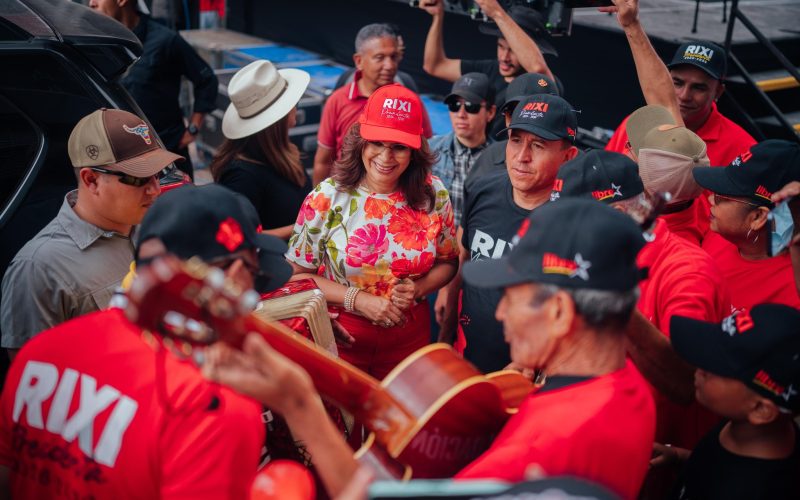The recent demonstrations, organized by factions linked to the LIBRE Party and rallying under the banner of “no turning back,” have sparked increasing apprehension across various segments of Honduran society. With the general elections merely weeks away, the nation finds itself immersed in an environment characterized by heightened political polarization, a weakening of institutional erosion, and widespread public distrust regarding the electoral proceedings.
Thousands of supporters of the ruling party gathered at various points in Tegucigalpa on a day that, according to government spokespeople, sought to “defend the refounding of the country and protect the popular vote.” However, for broad social sectors and political analysts, these demonstrations reflect a climate of tension and electoral uncertainty at a decisive moment for the country’s governance.
Reactions to a confrontational discourse
Expressions of backing for LIBRE’s political agenda were coupled with statements that, in the view of analysts, heightened the contentious nature of the circumstances. Certain prominent figures cautioned that the populace “will not permit their triumph to be seized from them,” a declaration that various factions perceive as a signal of opposition to a potential electoral loss.
One political scientist consulted pointed out that “this type of radical rhetoric increases uncertainty and fear. Instead of promoting peace, it creates the impression that the ruling party is not willing to accept defeat at the polls.” The opposition described the demonstrations as a strategy of political pressure aimed at both voters and electoral institutions, while LIBRE defended them as a legitimate expression of popular support.
Institutional warnings and calls for calm
Business executives, human rights groups, and domestic monitors have voiced apprehension regarding the unfolding events. They believe that large-scale demonstrations and aggressive language might hinder endeavors to guarantee a tranquil and fair electoral procedure. Consequently, the global community has reaffirmed its plea for adherence to election outcomes and the safeguarding of legal principles.
The National Electoral Council (CNE), on its side, confronts increasing difficulties in preserving public trust in its rulings. Inter-party friction, reciprocal allegations of misconduct, and the erosion of institutional credibility intensify the sense of democratic vulnerability. The public’s response to the LIBRE protests, marked by apprehension and disapproval, contributes to an environment of deep-seated skepticism regarding governmental frameworks.
Administration and the potential for societal division
The time leading up to the election is marked by continuous strain on public bodies. The persistent activity of groups supporting the current administration, alongside their rhetoric of “upholding the refoundation,” casts doubt on the government’s capacity to maintain order once the elections conclude. Numerous experts suggest that the difficulty extends beyond merely organizing the election; it also involves the prospect of preserving a fundamental political agreement to ensure stability post-vote.
On the streets of Tegucigalpa, the general feeling is one of weariness and skepticism in the face of political confrontation. The repetition of marches, accusations, and antagonistic speeches has displaced the debate on proposals and public policies, fueling the perception that the electoral contest is defined more by the struggle for power than by the search for national solutions.
The reaction of citizens and various institutional actors in the coming weeks will be decisive in assessing the real scope of LIBRE’s “no turning back” mobilizations. The country is approaching a critical point where political responsibility, respect for the law, and institutional maturity will be essential factors in avoiding a larger crisis and preserving democratic legitimacy.




